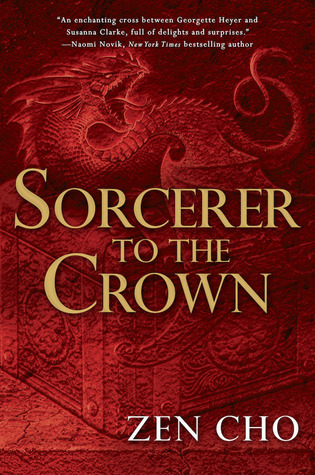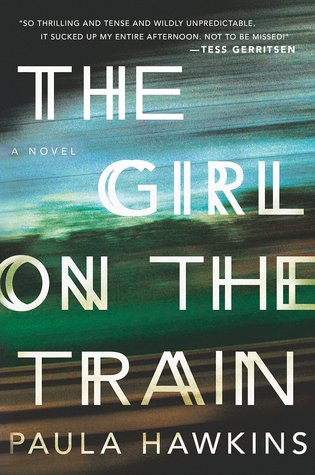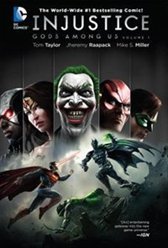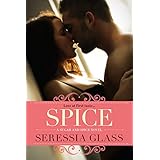(This post originally ran on
Book Riot.)
A Thank You to Teachers Who Forced Me to Read
“Boring” Books
When my eleventh grade English teacher announced that we
would be reading books about or centered around war to correspond with our
eleventh grade history class where we were studying various wars that the
United States had been involved in (the Spanish-American War, World War I,
World War II, and the Vietnam War), I was not particularly happy. Wars weren’t
really something I was into. Nor was I excited at the prospect of reading a
critique of American democracy by a Frenchman or about the trials and
tribulations of whale hunting, these last two to be read over the summer. I
have always loved reading but none of this sounded fun or interesting.
As a student I greeted prescribed reading and summer reading
lists with a mixture of excitement and dread. On the one hand, reading lists
inevitably provided a list of titles that were not new but were new to me. Plus,
I love lists and crossing things off.
On the other hand, I wanted to read what I wanted to read.
This was especially true during the summer, which more than any other time of
the year, was for what I called “free reading,” as in free to read whatever I
wanted at the pace I wanted. But being the rule follower/good student that I
was, I grudgingly read Catch-22, Democracy in America, Moby Dick, and host of other books that
made their way onto my class syllabi and summer reading lists. Thank goodness I
did.
There is much to be said for letting kids pick what they
want to read. They are more likely to finish a book if they got to choose what
to read. Giving kids choices, particularly kids who otherwise wouldn’t choose
to read, tends to make reading seem less like homework and more like something
that could be enjoyable. As a librarian and aunt to many young readers I try to
encourage their reading by helping them find books that match their interests.
The son of a friend told me that he wanted to travel around
the world with his mom so I gave him a kid’s atlas from National Geographic.
One of my nieces loves animals, not just cats and dogs but polar bears and
frogs so I searched the shelves at my local bookstore for fiction and
nonfiction stories about or involving animals. One of my middle grade aged
nephews, who is somewhat of a reluctant reader, loves football so together we
found a series of books that featured kids playing sports.
That being said, I also encourage them to read books they
claim to not be interested in because although I respect other people’s choices
and preferences whether they are kids, young adults, or actual adults, I also
think a person doesn’t fully know what they are interested in until they have
been exposed to it. It is easy to have a gut reaction to a thing without
actually knowing much about the thing, like my reactions to books about wars
and whales. Sometimes those gut reactions are spot on, sometimes not.
Catch-22 ended up
being one of my favorite books of all time, so much so that I have reread it
several times since high school. Moby
Dick was amazing in a way I would have not thought possible. (Yes, I really
do like Moby Dick.) This isn’t to say
I loved or liked every book I was forced to read in elementary, middle, or high
school. Try as I might, I simply cannot stand Wuthering Heights. I didn’t not like Democracy in America but I have no intention of ever reading it
again. Still, I am grateful for being exposed to books I did not think I would
like. I am also grateful for being exposed to things I didn’t like because it
helped me figure out what I didn’t like and why.
And so I keep buying my nephews and nieces “boring” books
because I know that once they actually sit down and read them they will find
that some of those books are not so boing after all. At least, that’s what
happened to me. Or maybe not, maybe my nephews and nieces will think a book I
gave them is terrible and then they can tell me why they did not like a
particular book. Either way is fine with me because I got them to read a book
and talk about it.
So thank you to all the teachers who forced me to read boring books. In some cases you helped me find something I
loved. Sometimes you forced me to think about why I didn’t like something. In
every case you gave something to think about.
 Big Rock was so much fun, so hot, and so funny. Spencer is rich, smart, nice, and shall we say gifted. He is a total playboy but the women he dates seem to know and appreciate what they're getting with him. Spencer also comes from a good family with parents who adore him, his sister, and each other. Spencer's parents are so in love with each other all his father wants to do is sell the family jewelry business and retire early so he can sail around the world with his wife. Luckily Spencer's father has a buyer all lined up. He just needs Spencer and his sex life to stay out of the gossip pages for a week because the potential buyer is conservative and wants to buy a wholesome family company. Spencer not only agrees to keep it zipped up for a week, he raises things up a notch and asks his best friend Charlotte to pretend to be his fiancee. She agrees with a condition of her own. Spencer and Charlotte agree to a few ground rules, one being no falling in love. Despite their best intentions it doesn't take long before Spencer and Charlotte's fake engagement starts to feel real.
Big Rock was so much fun, so hot, and so funny. Spencer is rich, smart, nice, and shall we say gifted. He is a total playboy but the women he dates seem to know and appreciate what they're getting with him. Spencer also comes from a good family with parents who adore him, his sister, and each other. Spencer's parents are so in love with each other all his father wants to do is sell the family jewelry business and retire early so he can sail around the world with his wife. Luckily Spencer's father has a buyer all lined up. He just needs Spencer and his sex life to stay out of the gossip pages for a week because the potential buyer is conservative and wants to buy a wholesome family company. Spencer not only agrees to keep it zipped up for a week, he raises things up a notch and asks his best friend Charlotte to pretend to be his fiancee. She agrees with a condition of her own. Spencer and Charlotte agree to a few ground rules, one being no falling in love. Despite their best intentions it doesn't take long before Spencer and Charlotte's fake engagement starts to feel real. Pasadena bookseller Adrien English has a problem. His high school friend and current employee has been brutally murdered. Someone has ransacked his shop and is sending him threatening messages. The police seem to consider Adrien a suspect in the case of the former, and are dismissive of the latter. And then there is the matter of his heart - sudden excitements tend to send poor Adrien's heart into a tizzy.
Pasadena bookseller Adrien English has a problem. His high school friend and current employee has been brutally murdered. Someone has ransacked his shop and is sending him threatening messages. The police seem to consider Adrien a suspect in the case of the former, and are dismissive of the latter. And then there is the matter of his heart - sudden excitements tend to send poor Adrien's heart into a tizzy. Zacharias Wythe is the Sorcerer Royal of England, that is he is the leader of the Royal Society of Unnatural Philosophers and advisor to the crown on England's magic related matters. As a Black man, former slave, and suspected murderer of the previous Sorcerer Royal and his adopted father Sir Stephen Wythe, there are plenty of people who think Zacharias Wythe does not deserve the position. Zacharias doesn't have time to worry about that however, for he has too many other pressing problems to deal with at the moment. England's source of magic is drying up, for one. Also, someone keeps
trying, and luckily failing, to kill him. On top everything there is Prunella.
Zacharias Wythe is the Sorcerer Royal of England, that is he is the leader of the Royal Society of Unnatural Philosophers and advisor to the crown on England's magic related matters. As a Black man, former slave, and suspected murderer of the previous Sorcerer Royal and his adopted father Sir Stephen Wythe, there are plenty of people who think Zacharias Wythe does not deserve the position. Zacharias doesn't have time to worry about that however, for he has too many other pressing problems to deal with at the moment. England's source of magic is drying up, for one. Also, someone keeps
trying, and luckily failing, to kill him. On top everything there is Prunella.
 Every day Rachel rides the commuter train from the suburbs into the city. Along the way the passes the street where she used to live with her now ex-husband Tom. Anna now lives in that house with Tom. As she rides the train Rachel can't help but gaze at her old street. If she is not staring at her old house, she is staring at another a few doors down where the cute couple she has nicknamed Jess and Jason live. Rachel likes to imagine their idyllic life.
Every day Rachel rides the commuter train from the suburbs into the city. Along the way the passes the street where she used to live with her now ex-husband Tom. Anna now lives in that house with Tom. As she rides the train Rachel can't help but gaze at her old street. If she is not staring at her old house, she is staring at another a few doors down where the cute couple she has nicknamed Jess and Jason live. Rachel likes to imagine their idyllic life. 


 Laurence Dalziel, Laurie to his friends and D to his casual BDSM hookups, is 37, six years out of last relationship, and emotionally stuck. His life is outwardly successful: he's a doctor with a nice house, but something is missing. He doesn't expect that something to be a 19-year-old. When Toby and Laurie meet there is immediate chemistry. Laurie takes Toby home expecting nothing more than a one-night stand. Toby wants more.
Laurence Dalziel, Laurie to his friends and D to his casual BDSM hookups, is 37, six years out of last relationship, and emotionally stuck. His life is outwardly successful: he's a doctor with a nice house, but something is missing. He doesn't expect that something to be a 19-year-old. When Toby and Laurie meet there is immediate chemistry. Laurie takes Toby home expecting nothing more than a one-night stand. Toby wants more. On one of the literary podcasts I used to listen to the host always asked his guests whether there were any authors whose new books the guests bought as soon as the books were published without so much as a thought about the contents of the book. Sarah Addison Allen is one of those authors for me. Ever since reading her first book, Garden Spells I've been a fan. Any new book of hers is automatically added to my unread pile (or as the masses say, TBR list). This week I read First Frost and was once again transported to one of the small North Carolina towns in which Addison's books take place.
On one of the literary podcasts I used to listen to the host always asked his guests whether there were any authors whose new books the guests bought as soon as the books were published without so much as a thought about the contents of the book. Sarah Addison Allen is one of those authors for me. Ever since reading her first book, Garden Spells I've been a fan. Any new book of hers is automatically added to my unread pile (or as the masses say, TBR list). This week I read First Frost and was once again transported to one of the small North Carolina towns in which Addison's books take place. Winner of the 2016 Hugo Award for Best Novella, Binti is the story of a woman who leaves her family and her homeland to attend the prestigious Oomza University. She is the first of the Himba people ever to be offered a position at the university. With an insatiable curiosity and an unquenchable thirst for knowledge and learning, she can't say no to the offer although that is what her family would have her do. Himba people don't ordinarily leave their homeland. Binti boards the ship bound for the university anyway. Along the way the ship is attacked and Binti finds herself in the middle of a conflict between the Meduse and the university.
Winner of the 2016 Hugo Award for Best Novella, Binti is the story of a woman who leaves her family and her homeland to attend the prestigious Oomza University. She is the first of the Himba people ever to be offered a position at the university. With an insatiable curiosity and an unquenchable thirst for knowledge and learning, she can't say no to the offer although that is what her family would have her do. Himba people don't ordinarily leave their homeland. Binti boards the ship bound for the university anyway. Along the way the ship is attacked and Binti finds herself in the middle of a conflict between the Meduse and the university. We the Animals centers around three half-Puerto Rican, half-white brothers growing up in upstate New York. They are the Three Musketeers, the Three Bears, the Three Stooges, Frankenstein, the bride of Frankenstein and the baby of Frankenstein. Narrated by the youngest brother, they are always three, always a "we." They grow up in poverty with parents who work long hours in an effort to put food on the table, sometimes succeeding, sometimes not. Together they watch their parents fight and love, in both cases violently and passionately. They struggle to make sense of what they witness. What is obvious to the reader - the violence of the father in particular, is not at all obvious to the three brothers. As the three brothers grow older "we" shifts to "I." His good grades and sexuality begin to set the youngest brother apart, with painful consequences.
We the Animals centers around three half-Puerto Rican, half-white brothers growing up in upstate New York. They are the Three Musketeers, the Three Bears, the Three Stooges, Frankenstein, the bride of Frankenstein and the baby of Frankenstein. Narrated by the youngest brother, they are always three, always a "we." They grow up in poverty with parents who work long hours in an effort to put food on the table, sometimes succeeding, sometimes not. Together they watch their parents fight and love, in both cases violently and passionately. They struggle to make sense of what they witness. What is obvious to the reader - the violence of the father in particular, is not at all obvious to the three brothers. As the three brothers grow older "we" shifts to "I." His good grades and sexuality begin to set the youngest brother apart, with painful consequences.  The Darkest Passion continues Gena Showalter's Lords of the Underworld series about a group of immortal warriors, each of whom holds a demon inside of him or her. If the lord is killed his or her demon would be released into the world. And so, the lords must protect themselves not only because they want to live but to prevent their demons from wreaking havoc in the world. The hunters don't see it that way. They blame the lords for everything bad that is happened and believe killing the lords will fix all the problems of the world.
The Darkest Passion continues Gena Showalter's Lords of the Underworld series about a group of immortal warriors, each of whom holds a demon inside of him or her. If the lord is killed his or her demon would be released into the world. And so, the lords must protect themselves not only because they want to live but to prevent their demons from wreaking havoc in the world. The hunters don't see it that way. They blame the lords for everything bad that is happened and believe killing the lords will fix all the problems of the world. Sugar is the second in what I'm guessing will be at least a four book series by Seressia Glass (the first book being Spice). Siobhan "Sugar" Malloy is a thirty-five year-old co-owner of the Sugar and Spice Cafe, a part-time burlesque dancer, and a recovering addict. She's doing mostly okay with five years of sobriety, a group of supportive friends, and a successful business. All that's missing is a love interest. Enter Charlie O'Halloran.
Sugar is the second in what I'm guessing will be at least a four book series by Seressia Glass (the first book being Spice). Siobhan "Sugar" Malloy is a thirty-five year-old co-owner of the Sugar and Spice Cafe, a part-time burlesque dancer, and a recovering addict. She's doing mostly okay with five years of sobriety, a group of supportive friends, and a successful business. All that's missing is a love interest. Enter Charlie O'Halloran. Spice is a contemporary adult romance. Nadia Spiceland is a bakery owner, former reality TV star, and a recovering accident. She's been sober and celibate for four years and is looking to change one of those things. She doesn't want a relationship, just a man who knows what he's doing. Enter Kaname "Kane" Sullivan a professor at the local college who teaches human sexuality. In addition to teaching, Kane is a police consultant and an author of several well regarded nonfiction books. The seriousness of his academic pursuits has not stopped Kane's students from giving him the nickname Professor Sex. Fortunately for Nadia Professor Sex is exactly what she is looking for.
Spice is a contemporary adult romance. Nadia Spiceland is a bakery owner, former reality TV star, and a recovering accident. She's been sober and celibate for four years and is looking to change one of those things. She doesn't want a relationship, just a man who knows what he's doing. Enter Kaname "Kane" Sullivan a professor at the local college who teaches human sexuality. In addition to teaching, Kane is a police consultant and an author of several well regarded nonfiction books. The seriousness of his academic pursuits has not stopped Kane's students from giving him the nickname Professor Sex. Fortunately for Nadia Professor Sex is exactly what she is looking for. 
 Trailer Park Fae has a great cover and a great title. That was part of what attracted me to this book. That and the blurbs on on the back by Patricia Briggs, author of the Mercy Thompson series which I love, and Chuck Wendig. With a title like Trailer Park Fae, I expected fantasy and fun. I got fantasy, not that much fun, and lots of confusion.
Trailer Park Fae has a great cover and a great title. That was part of what attracted me to this book. That and the blurbs on on the back by Patricia Briggs, author of the Mercy Thompson series which I love, and Chuck Wendig. With a title like Trailer Park Fae, I expected fantasy and fun. I got fantasy, not that much fun, and lots of confusion. Sabotaged is the fifth and final book in Dani Pettrey’s
Alaskan Courage series. Like the other entries in the series, it is a mixture
of romance and suspense with a heavy dose of Christianity. The couple at the
center of this entry in the series are Kirra Jacobs and Reef
McKenna.
Sabotaged is the fifth and final book in Dani Pettrey’s
Alaskan Courage series. Like the other entries in the series, it is a mixture
of romance and suspense with a heavy dose of Christianity. The couple at the
center of this entry in the series are Kirra Jacobs and Reef
McKenna.